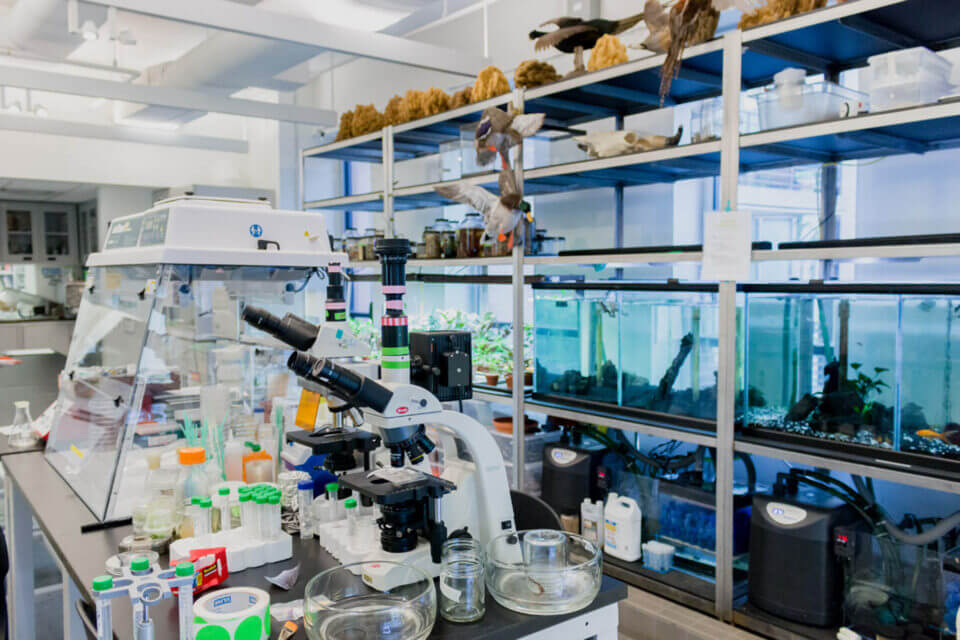
“It bears to repeat, however, that our genes do not directly decide the actions we take in life—as fatalism would like one to believe. They are not the means to our destiny but, rather, are the keys to our hypothetical reality.”
The late Renaissance period meant the beginning of the Scientific Revolution for the Western world. People began to obtain scientific knowledge, and interest in science steadily grew over time . Criticism by religious fundamentalists aside, being a scientist came to be considered—in most circles—an admirable occupation. But, as is the case with any interest, science is not everyone’s cup of tea. We have seen this with postmodernists from the Left, who argue that objective knowledge is non-existent. All the while, some right-wing fundamentalists today, like in centuries past, deny scientific findings on the basis of faith. Then, there are populists who exhibit a general unease with science and, even more, scientists themselves.
The act of maligning science will, unfortunately, likely continue. This concern is shared by the authors of the recently released book Cynical Theories: How Activist Scholarship Made Everything about Race, Gender, and Identity — and Why This Harms Everybody, Helen Pluckrose and James Lindsay. In their book, Pluckrose and Lindsay argue that “attacks on science from the religious right and the postmodern left are strong influences on society that always have to be struggled against.” In an earlier essay at Merion West, I called the former group of people — though postmodernists would equally fit this label — ”empty skeptics.”
With that said, we continue to observe great admiration for scientists. Their relative rarity in the population may, indeed, account for some of this admiration. I wonder, however, if the relative scarcity of scientists in our society, though, is unnecessary. To put it differently, if there truly are representation gaps in science related to gender or personality, perhaps they can be bridged. Gaps might stem from, say, latent gender preferences or biases against the less wealthy. Some, on the other hand, would argue that our immutable traits, which are typically considered the source of said gaps, do not affect outcomes — that is, the person we could become.
A great example of an argument to this effect is John Watson’s behaviouristic claim at the start of the 20th century, which suggested that anyone can be turned into an expert . This view, however, is wont to disregard innate capabilities that come into play concerning the nature of an “expert.” Watson’s claim would, therefore, indicate that this infrequency of experts is—broadly speaking—unnecessary. After much research, we, fortunately, now recognize that this behavioristic perspective is false. It is false in the sense that we are now aware of the existence of a human nature, which can explain why scientific expertise is relatively uncommon. As such, it seems that naturally occurring differences in capability might be a better explanation for why there are relatively few scientists.
Educational Attainment
Whether someone takes the path of becoming a scientist heavily depends on his or her educational attainment. In the past, people have debated this notion by focusing on the distribution of opportunities for children to access higher education — also called intergenerational educational mobility. This primarily appears to rely on genetics. In other words, as Robert Plomin writes in his 2018 book, Blueprint:
“The best predictor of whether children go to university is whether parents went to university, a link which is widely assumed to be environmental in origin and which is thus thought to be a sigh of immobility and lack of equality.”
Despite this, we should bear in mind that the heritable aspect of educational attainment does not suggest that every child whose parents are university-educated will end up at the same educational level. Obviously, the same holds true for children whose parents achieved a lower educational level. Plomin repeatedly mentions his indeterministic mantra throughout his book by pointing out that “genes are not destiny”—and that heritability often “describes what is, not what could be.” Although students inherit, according to Plomin, approximately 50% of the “educational attainment genes” from their parents, it does not make them static beings simply awaiting their fate.
That being said, we cannot possibly overlook the genetic variance that has been found concerning the levels of education one achieves. It would be very convenient for both parents and teachers if nurture had a greater impact than genes on a child’s development. This is, unfortunately, not the case. Rather than arguing that the most prestigious universities unfairly select students who went to private schools, we can accept the fact that they probably would have gone to these universities regardless of their having attended a private school. Hence, it is the innate, heritable traits that are of the utmost importance.
Personality and Gender Biases
To be able to observe how people differ in their willingness to engage with scientific knowledge, we should look also at personality traits that are more prevalent in those who do engage with such knowledge. Using the Multidimensional Personality Questionnaire (MPQ) and the NEO Five-Factor Inventory (NEO-FFI), Phillip Ackerman and his fellow researchers observed that the personality trait of openness to experience had a positive relationship with the acquirement of new knowledge — as opposed to the trait extraversion, which had a negative correlation.
The negative extraversion-knowledge relation that Ackerman and his colleagues found might be explained by preferences in time investment. This means that people who socialize more have less time available to invest in the acquisition of knowledge via studying, reading, etc. Furthermore, similar to educational attainment discussed previously, personality has—according to Plomin—an equal heritability of 50%.
On top of that, two scientists, Jordan A. Litman and Charles Spielberger, found in 2003 a significant gender difference in terms of epistemic curiosity (EC) — “[the] desire for knowledge that motivates individuals to learn new ideas, eliminate information-gaps, and solve intellectual problems,” as described by Litman. Their findings indicate that males scored significantly higher than females on the EC-scale. Additionally, Litman and Spielberger measured that males scored much higher on the NES External Cognition subscale. (This subscale evaluates the extent to which someone shows a preference for figuring out how things work.) Again, this might suggest that males, on average, are more likely to engage with knowledge in an exploratory manner. As such, they tend to be exposed to more knowledge.
Lastly, these findings complement one of the greatest gender differences that psychology has recently discovered : the so-called Things-People difference. This psychological difference reveals how men, on average, prefer working with things, and women favor working with people. Rong Su and her fellow researchers not only describe the existence of the Things-People difference but further suggest that “these sex differences are remarkably consistent across age and over time, providing an exception to the generalization that only small sex differences exist.”
But, despite these studies, it is often argued that the scientific community holds an unconscious bias against women, seeing how relatively few women fill scientific roles. To say otherwise today is to put oneself in danger of the modern phenomenon of cancellation. For instance, the Italian physicist and professor at the University of Pisa, Alessandro Strumia, faced this precise outcome in 2018 after presenting his results on a study related to the under-representation of women in physics, which was widely perceived to be the result of discriminatory hiring practices. Throughout his presentation, Strumia essentially argued that the STEM community is being accused falsely of having an unconscious bias against women.
Although Strumia’s remarks, as I see it (both from his presentation slides, as well as his Quillette essay) did not spring from sexist tendencies but rather out of curiosity, it was not faultless. The anonymous researcher who published a letter at Areo as a response to Strumia’s ongoing cancellation effectively summarizes both the unprofessional aspects of Strumia’s presentation, as well as the mistake of the physics community to cancel Strumia. Having said that, the debate still revolves around the question of whether women are necessarily uncommon in the science community.
Given the many mentioned psychological differences between men and women regarding their inclination to become a scientist (and acquire the concomitant knowledge), we can say—at the very least—that a 50–50 representation between the two sexes would eventually be biased against men. Compelling employers at research facilities and universities solely to hire women to create an equal environment will not be—and has never been—a desirable solution. Despite what some might assert, I would argue that being hired because of an immutable characteristic—as opposed to merit—is a less than desirable outcome.
The Genotype-Environment Correlation
Although environmental factors are not a focus of this piece, the following theory deserves an exception. This brings us to the genotype-environment correlation theory (GEC for short), which takes on three different forms (passive, reactive, and active). This theory, as Plomin points out, “provides a general model for how genotypes become phenotypes; that is, how we select, modify and create environments correlated with our genetic propensities.”
For instance, a passive correlation would mean that parents indirectly cause a relation with the genotype of their offspring and the environment. This signifies that the parents will arrange an environment suitable to their genotype, without consciously taking into account the genotype of their children. Parents who, for example, are highly open to new experiences (a personality trait that is reasonably heritable) and, therefore, read a lot of books are likely to create actively an environment that complements this personality aspect — that is, an active GEC . This, in turn, will expose their children to their interests.
The GEC theory does not, however, suggest that parents have a direct influence on the behavior or personality traits of their children— aside from their genetic influence, which they have no power over. To put it another way, it is generally not the case that scientists are moulded by their parents, as some would like to believe. The notion that our parents, siblings, and peers — in other words, the environment — shape the person we become appears prima facie to be obvious. However, though we cannot see our genes with the naked eye, they still have a tremendous influence over whom we become.
Conclusion
The psychological, gender, genetic, and personality differences I mentioned throughout this article will—most likely—not account for the complete representation gap that some argue should be abolished. Likewise, I am not claiming that this gender disparity is good — since that would constitute a natural fallacy. It is also not bad for that matter. So as long as people are not prevented from doing what their interests dictate, we have no reason to look to alter skewed distributions that result from innate factors. Yet, that is hardly tantamount to anyone defending unfair treatment towards anyone, regardless of gender or personality type.
But, frankly, we have to reconcile with “the brute fact,” as Pinker writes in The Blankslate:
“…that greater rewards will go to people with greater inborn talent if other people are willing to pay more for the fruits of those talents. The only way that cannot happen is if people locked into arbitrary castes, if all economic are controlled by the state, or if there is no such thing as inborn talent because we are blank slates.”
Although many are reluctant to hear this, we cannot—and should not—remain ignorant about the fact that innate qualities are, to some extent, influenced by our genes.
It bears to repeat, however, that our genes do not directly decide the actions we take in life—as fatalism would like one to believe. They are not the means to our destiny but, rather, are the keys to our hypothetical reality. And this reality does not change by making hyperbolic statements concerning the representation gap in science. To the contrary, research has been telling us for over a decade that “in more prosperous and egalitarian societies the personality profiles of men and women become decidedly less similar.” Going forward, as opposed to labelling any disparities as morally wrong, we can accept the fact that we have our differences. In turn, we can tackle inequalities that are caused by changeable factors, instead of those resulting from our human nature.
Alessandro van den Berg is an economics teacher in the Netherlands.











We need a summary of this fatalist, sexist and uncharitable argument: You get what you deserve. This article is not a legit solution for naturalist fatalism, it is the same as always. Don´t waste your time, reader. But, it’s okay for other purposes, like keep safe the status quo, actually. If you are a right-wing boy this is for you. It is a Pinker sense of style.